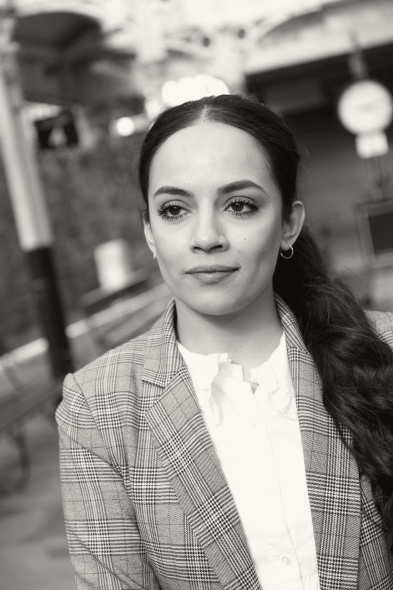Trusts Solicitors
Setting up a trust can be a practical and useful means of safeguarding your wealth, minimising what you owe in tax and ensuring your personal assets are protected for your family if anything happens to you. However, they can also be complex to set up and administer, and it is always best to consult an expert team of trusts solicitors to ensure that they are dealt with correctly.
At Clough & Willis, our trusts solicitors can help you establish and administer a trust in a way that’s straightforward, comprehensive and suitable for your specific needs and requirements. We can talk you through the various types of trusts to identify the best arrangement for you, and give you the right amount of control over your assets.
By getting in touch with us, you can set up a trust that provides maximum protection for your wealth and offers financial security for your family, giving you peace of mind that they will be taken care of no matter what happens.
To speak to a member of our team, based in Bury and Bolton, about trusts, call Clough & Willis on 0800 083 0815, or fill in our online enquiry form to request a call back at a time that’s convenient for you.
How we can help
At Clough & Willis, our team of trusts solicitors are here to provide legal advice and support with all aspects of administering and setting up a trust, giving you security and confidence that your personal assets will be protected.
We can help you to set up and manage a number of types of trusts, tailored to suit your individual requirements and circumstances. These purposes include:
- Inheritance Tax planning - we can help you create will trusts or lifetime trusts to help reduce any potential inheritance tax charge upon your death
- Long-term care planning - we can set up trusts to help you protect your wealth, assets or property from means-tested assessments, which may be undertaken if you require residential care in later life
- Compensation protection - if you have received compensation as a result of a personal injury claim or similar, we can help you set up a trust to protect this wealth and prevent it from detrimentally affecting claims for means-tested benefits
Any enquiries you might have concerning wills and trusts will be handled by our private client team which consists of Nicola Finbow, Ryan Browne and Rafia Faruk all with extensive experience. Nicola is a specialist solicitor is a member of the Society of Trust and Estate Practitioners (STEP), further underlining their expertise in this area of law.
We understand that trusts can seem complex to deal with, which is why we are committed to supporting you and answering all of your questions at every step of the process, using clear, jargon-free language.
How do trusts work?
Trusts are a means of protecting valuable assets, including money, investments, land or buildings, that are being held for the benefit of others. Setting up a trust involves at least three parties:
- The settlor, who is responsible for putting the assets into the trust
- The trustee, who is responsible for managing the trust
- The beneficiary, who will ultimately benefit from the trust
The settlor will decide how the assets in the trust will be used and distributed in a document known as the trust deed, before placing their assets into the trust fund. The trustees then take legal ownership of the trust, managing it on a day-to-day basis and making decisions about how it should be used or invested, with the ultimate purpose of fulfilling the instructions of the settlor set out in their will or trust deed.
What are the different types of trusts?
People set up trusts for a variety of reasons, whether to provide better control over their family wealth, to pass on assets after they die or during their lifetime, or to protect the interests of a young beneficiary until they come of age.
As such, there are multiple forms of trusts available, with different tax rules and mechanisms; many of these types of trust have overlapping definitions and uses, meaning it is best to seek professional advice on the best trust arrangement for your needs.
Some of the most common types of trusts include:
- Charitable purpose trusts - these trusts are set up for specific charitable purposes, such as poverty relief or advancement of education or religion, and have the lowest rate of tax applied to them
- Discretionary trusts - these provide the trustees with the power to make decisions about how to use the income or capital generated by the trust - for example, a discretionary family protection trust would allow the trustee to decide which family members need the most help
- Lifetime trusts - these trusts are created during the lifetime of the settlor, allowing them to pass on or continue managing their assets while they are still alive. This category includes property protection trusts, used to protect the capital value of a home
- Revocable and irrevocable trusts - revocable trusts allow the settlor to retain ownership and control of the trust’s assets, and to alter the trust deed at any time, while irrevocable trusts cannot be changed once they have been set up
- Settlor-interested trusts - used when the settlor themselves is among the beneficiaries of the trust
- Will trusts - also known as testamentary trusts, these only come into effect when the settlor dies, having established the terms and beneficiaries of the trust during their lifetime
If you require advice on these or any other types of trusts, it is advisable to speak to a trusts solicitor with expertise in these matters.
Need help right away?
Contact Clough & Willis
Clough & Willis offers compassionate and easy-to-understand advice throughout the legal process.
If you require support on any aspect of Wills, trusts and probate matters you can speak to an expert solicitor by calling 0800 083 0815, or filling out an online enquiry form





